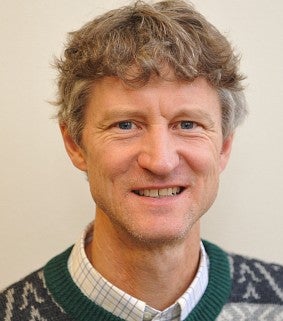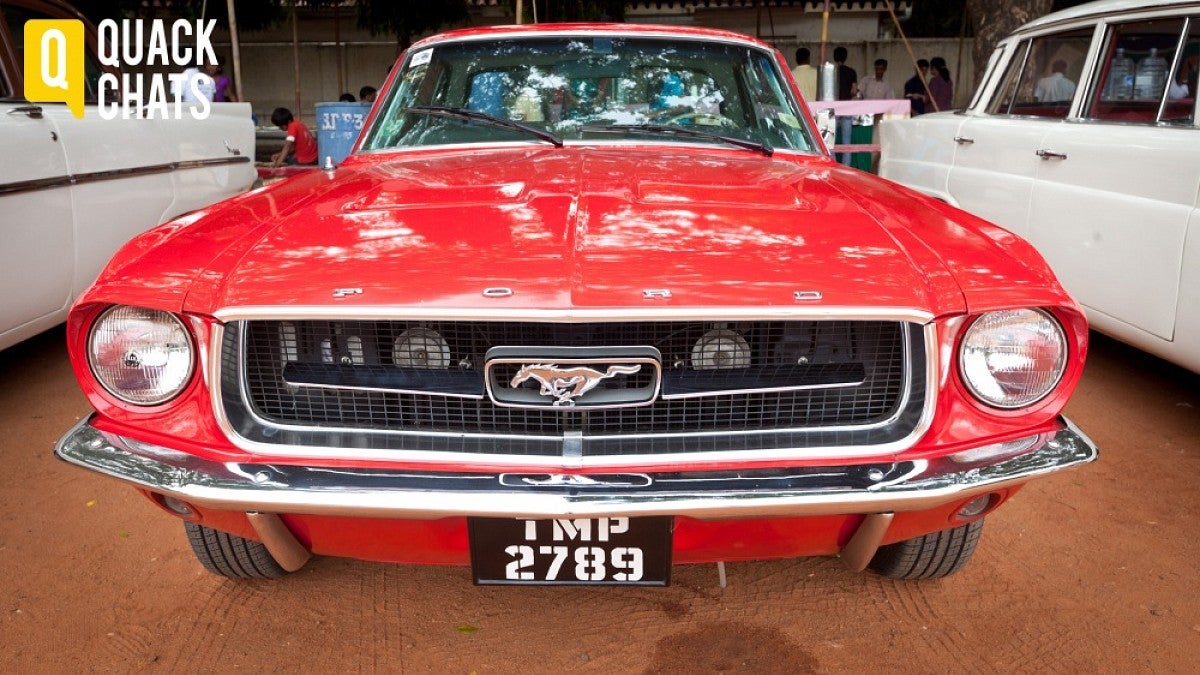Cars are more than just a reflection of who we are; they are completely intertwined in our sense of what it means to be human, says UO English professor Gordon Sayre.
“Think about how many times you’ve been driving down the street and you look into a parking lot in front of a restaurant or a store and you say, ‘There’s a lot of people there,’” Sayre said. “You are actually looking at the cars, but you’re thinking of the people because people and the cars are, of course, connected. We use one as a reference for the other — a car and its driver function as a unit and have characteristics that neither has by itself.”

A professor in the Department of English and the Clark Honors College specializing in colonial and early American literature, Sayre is a long-time car fanatic who, six years ago, developed a popular course in the UO folklore program called car cultures.
In his talk, “The Humanity of the Car: How We Treat Cars Like People and What It Means for the Future of Transportation,” Sayre will explore the concept of “automobility” — the whole complex of different ways that we depend on cars in modern society — and answer questions like, “Do cars have ethnicity?” and “How do the ‘faces’ of cars vary from one car to another?”
“Cars have faces, and auto designers all know this and they devote special care to giving a car a certain type of face,” Sayre said. “The expression on that face implies certain characteristics of the car. Small, economy cars often have smiling faces, whereas muscle cars and many sports cars are designed to look aggressive or angry or sinister.
“This often is centered in the headlights because the headlights are the car’s eyes and the grill is the car’s mouth.”
Sayre is a 25-year veteran of the UO. He graduated, magna cum laude, from Brown University with a bachelor’s degree in comparative literature before earning his doctorate from the State University of New York at Buffalo.
Among other awards, he has received a Fulbright Research Fellowship, a Coleman Guiteau teaching professorship and a research fellowship from the Oregon Humanities Center. He has received multiple research grants from the National Endowment for the Humanities and published numerous books, translations and scholarly articles, including the award-winning translation of a 1747 memoir by a French colonial officer in Louisiana, Jean-François-Benjamin Dumont de Montigny.
As part of his work examining the humanity of the car, Sayre has been contributing to the research being conducted by architects and urban planners at the UO in the Urbanism Next research group. Together, these faculty members and grad students seek to predict how quickly autonomous vehicles will be adopted and how they will change the shape of our cities.
If, for example, more and more people opt to take driverless cars to work and chose to shop online instead of shopping locally in stores and malls, what will become of the parking lots and high-volume streets of today?
Ultimately, Sayre doubts that many Americans are itching to make the switch to driverless technology. After all, he says, our complex relationship with our cars runs deep.
“Judging from what I’ve seen about predictions of technological change in cars in the past, I don’t think it will change as quickly as many people are predicting right now,” he said. “Some people who love their cars and love driving them will not want to give them up and start riding around in autonomous vehicles. For many of these people, to give up one’s car is to give up part of one’s identity.”
To learn more about upcoming Quack Chats, see the Quack Chats section on Around the O. A general description of Quack Chats and a calendar of additional Quack Chats and associated public events also can be found on the UO’s Quack Chats website.


